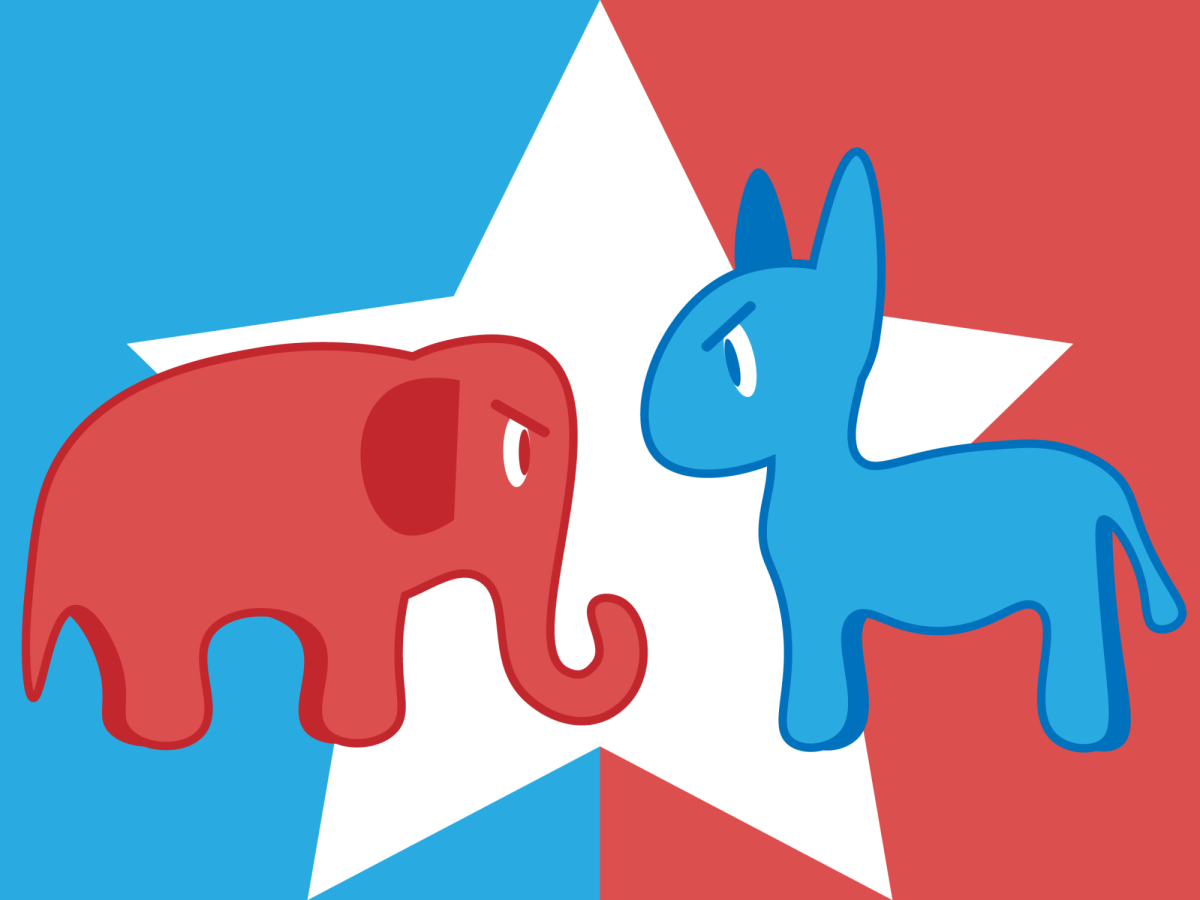It’s a very safe bet to assert that there isn’t a United States resident alive today who hasn’t heard about the results of the 2024 presidential election. The bet that there are millions of citizens who have strong feelings about the results, no matter how oppositional they are from one another, is even safer.
As a young voter who just participated in my very first presidential election, this past year was an absolute whirlwind of emotion and confusion for me politically, as I’m sure was the case for thousands of my peers in similar positions. For the first time ever in my life, I was pushed out of my personal bubble and forced to dive into the world of political education.
The realization that I would be an active participant in the 2024 election whether I voted or not kick-started an exploratory mission of self that resulted in a total evolution of my thinking processes and my understanding of the way our country works. The product of starting that journey was not something I ever would have anticipated, but certainly something I’ve begun to finally understand, and more importantly, continue to pursue.
One thing I’ve come to realize is that even during this difficult and uncertain time for the U.S., we cannot allow grief and fear to alienate us from continuing to learn and grow. That includes analyzing the convictions and thinking processes of those who voted differently than us, or who didn’t vote at all. It also includes acknowledging our own shortcomings.
Yes, millions of people voted for Donald Trump and JD Vance in the weeks leading up to Nov. 5 with prejudice and selfishness in their hearts, and that is the epitome of detestable –– but there were other factors, and we can’t let emotions overshadow nuance during times of crisis simply because it’s easy.
We need to ask ourselves difficult questions now. What went wrong? What are we missing? Was this really a problem just because of bad people, or a problem with a bad system? The answers to these questions are complex and upsetting –– but a better future depends on the acknowledgement of them.
This election, while heightened by rampant socio-political divides, was like any other in the sense that we were presented with two opposing choices framed as different as night and day, and told to pick. U.S. politics depends on the polarization of the Democratic and Republican parties. It depends on us thinking we have a choice.
But both parties, in the grand scheme of things, are the same; fueled off of wealth and power at the expense of others. Unless change is made, it wouldn’t have mattered whether we had a 34-time convicted felon or a woman of color in the Oval Office –– nothing would have gotten better.
We all watched as Kamala Harris and Donald Trump took their places on either side of the debate stage on Sept. 10. We watched as Trump spewed ignorant, hateful rhetoric about Haitian immigrants eating house pets in Ohio and alluded to “concepts of a plan” for his would-be second presidential term.
Trump’s debate performance was so particularly offensive that few took notice when Harris defended a penchant for fracking and verbalized her support of Israel’s murderous rampage of Palestine, which she sickeningly defined as the country’s “right to defend itself.”
Either way, the U.S. was going to elect a terrible person as its leader. What you understand about the economic ties the U.S. holds in international conflict doesn’t matter –– thousands are dead. What one may understand about the U.S.’ dependence on fossil fuels for production and trade doesn’t matter –– the planet is dying. Surely these crises can’t be worth the lazy sentiment of, “it’s just the way things work.” I am ashamed of the lack of morality on both sides.
Obviously, a Harris administration would have been better for the personal rights of U.S. residents –– that is undeniable. Trump’s victory will mean invasive and even perhaps violent encroachment on the personal freedoms of immigrants, racial minorities, women, LGBTQ+ people and those with disabilities.
It will likely mean radical censorship of essential knowledge surrounding the U.S.’ history of colonialism and slavery in schools, basic sex-ed in schools, LGBTQ+ awareness and more. It will mean the strengthening of dangerous Christian nationalism and blind American exceptionalism in our country, and it will mean rampant inflation and likely the removal of basic, previously unquestionable staples of healthcare, like birth control and vaccinations.
That Tuesday night, against what seemed like all rational odds, Trump overcame the final obstacle standing in his way of recapturing the White House and setting his racist, sexist and xenophobic plans in motion.
I know it seems hopeless. Walking around campus the morning after felt like a fever dream –– everything was blanketed in this kind of unspoken tension. It still feels that way, honestly. But after hopelessness, must come resolve.
This election did not turn out the way so many people, including myself, hoped it would.
For me, a Trump election was so unthinkable that I didn’t even actually consider it was realistic. I feel grief for my little sister, my LGBTQ+ friends and family members, my friends born to immigrant families and all the people in my life who will be negatively affected by the laws of the country they may have once trusted to keep them safe. I am disgusted, and I am scared.
At the same time, though, I feel hopeful and even empowered. We have been placed in a unique situation and we have an equally unique opportunity ahead of us. This is not the time to shy away and recede into defeat. This is the time to stand up and speak out — and not in defense of either primary party.
The next four years will likely spell uncertain acts of oppression and discrimination for a lot of our country’s people, but it will also mean accelerated, further irreparable damage to the physical world as we know it. People have said too much is at stake but too much has been at stake for far too long. Long before Trump was even a relevant name. That’s what scares me the most.
The only way forward from here is change. Serious, unwavering change. We need to re-evaluate what it means to be the U.S., what it means to be a country and what it means to be a compassionate human being. A better future is possible — we just need to believe that the present isn’t the only option.
Voting was never going to be our ticket to progress and it certainly won’t be now. If you are someone directly affected by political action after the January inauguration, don’t shy away –– stand up. If you are someone not directly affected, don’t succumb to the comfort of ignorance –– find some compassion and stand up.
If people keep dying and the world keeps burning, everyone will eventually be affected, one way or another. This is not just a crisis of U.S. rights, this is the world as everything knows it. This struggle isn’t just personal; it’s existential.
We are all capable of using our heads and our hearts to decide whether we want to continue pretending like the way things have been will improve the world, or if we want to actually take action to make things better for once. Change begins with the masses, not with the president.
Before you say it’s not that serious, it is. If you don’t understand that now, by the time you finally do, it might be too late. Fear and hope are not mutually exclusive. Change is the only way.
Figure out what that means to you, and stand up.




Susie Arnholt • Nov 12, 2024 at 7:14 am
Biased much? Have you been grocery shopping or filled a car with gas with your own money? Have you ever served in the military? The policies of the last few years were utter failures.